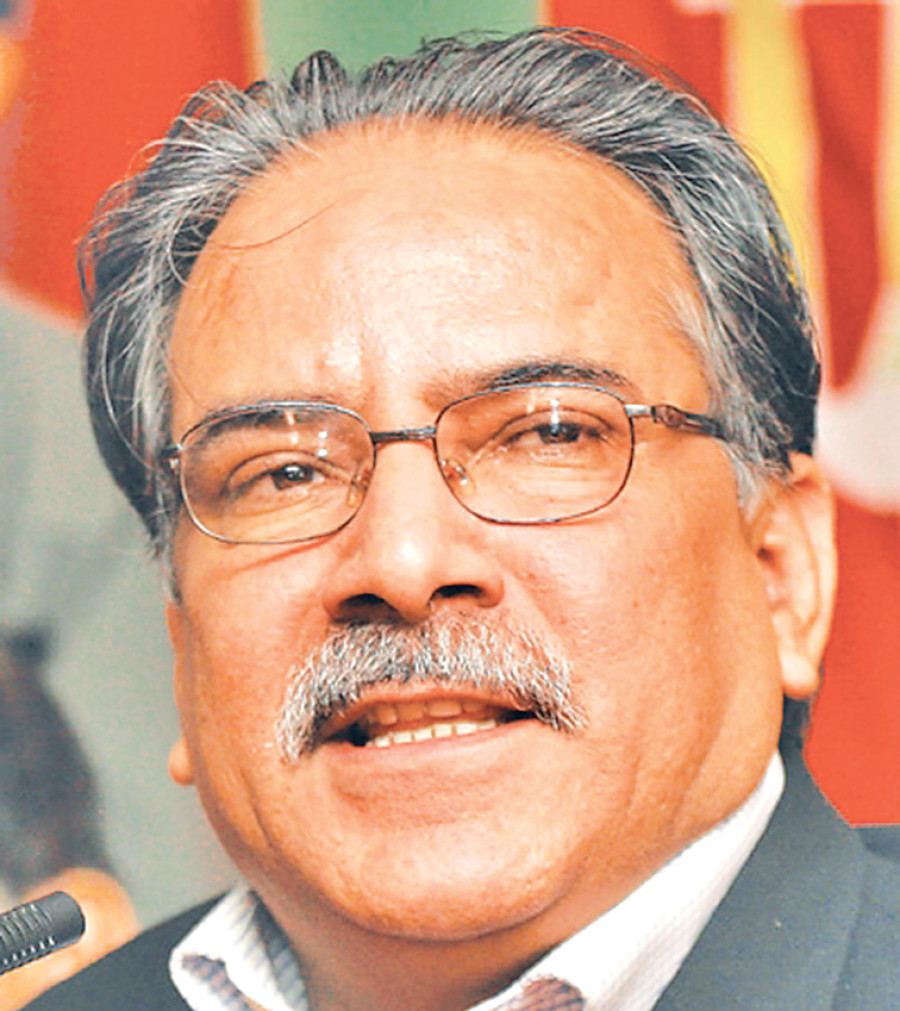Miscellaneous
‘Arrest fear’ cited for cancelled tour
In public speeches, Chair of CPN (Maoist Centre) Pushpa Kamal Dahal often dares the government to arrest him on charge of war-crimes, but what came to light on Thursday is his fear of being arrested in the foreign land.
Dewan Rai
In public speeches, Chair of CPN (Maoist Centre) Pushpa Kamal Dahal often dares the government to arrest him on charge of war-crimes, but what came to light on Thursday is his fear of being arrested in the foreign land.
Although Dahal cited the current state of the country’s politics for abrupt cancellation of his visit to Australia, multiple sources confirmed that he abandoned the trip altogether after he was told about a “so called” complaint registered at the New South Wales government against him. Dahal was scheduled to inaugurate a convention of the People’s Progressive Forum, Australia, the party’s foreign wing, in Sydney, the capital of the New South Wales.
The fear is natural as Dahal was the supreme commander of the decade-long Maoist insurgency that led to the death of 16,000 people, 1400 disappearances, 20,000 cases of torture and over 80,000 internal displacements.
This also comes at a time when transitional justice bodies, established one year ago, have been actively collecting complaints of war-era crimes.
He feared possible arrest in Australia that has universal jurisdiction, said Attorney General Hari Phuyal. “However, the Australian embassy confirmed that there is no case filed against him.”
In 2013, Nepal Army Col Kumar Lama was arrested in the UK under the universal jurisdiction. Lama, who was serving in the UN peacekeeping mission in Sudan, was on a vacation in London, when he was arrested in a case of torturing two individuals in the Army’s Kapilvastu barracks. Arrested under the country’s obligation under the UN Convention Against Torture (UNCAT), Lama’ case is being tried in London as a criminal offence under Section 134 of the Criminal Justice Act (1988).
The Truth and Recon-ciliation Commission has been urging political leaders and the authorities concerned to cooperate with the commission in establishing truth and delivering justice. Universal jurisdiction comes into play when the state fails to provide justice due to either its incompetence or unwillingness.
Rights lawyers hint at a number of other cases, which have already matured, against security officials and political leaders. “We cannot say for sure but there are a good number of cases against perpetrators of rights violations during the conflict,” said rights lawyer Bikash Basnet.




 17.12°C Kathmandu
17.12°C Kathmandu










